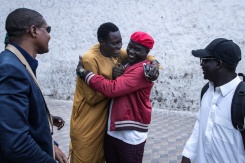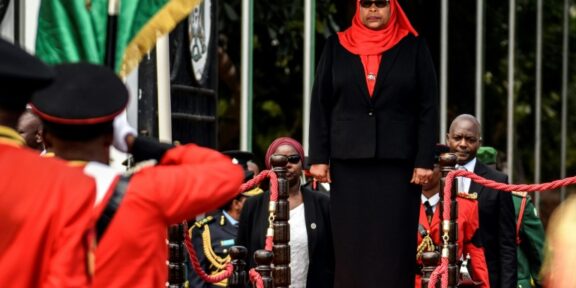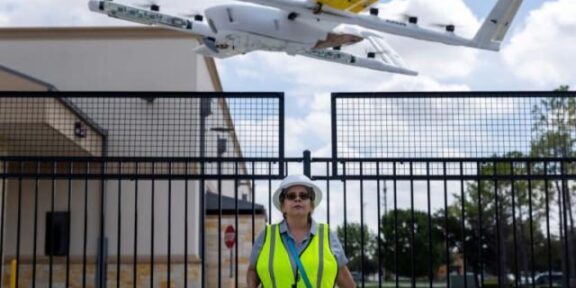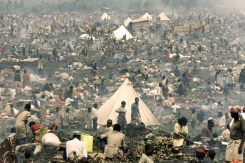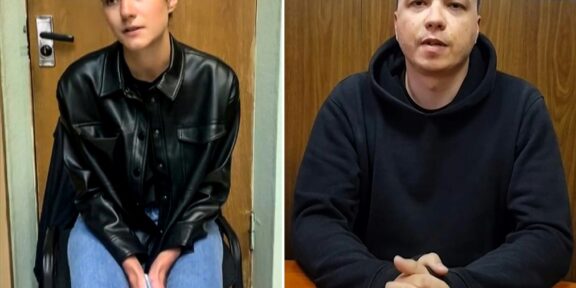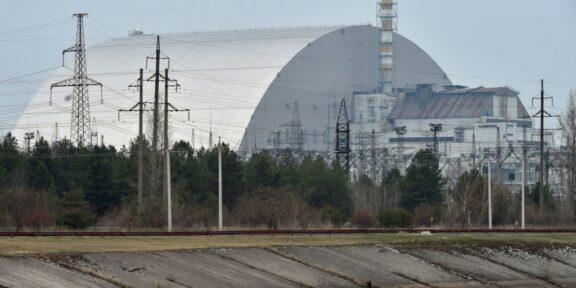Senegal’s Constitutional Council on Thursday overturned the postponement of this month’s presidential election, a historic decision that opens up a realm of uncertainty for the traditionally stable West African nation.
President Macky Sall’s decision earlier this month to postpone the February 25 poll plunged Senegal into its worst crisis in decades, sparking widespread outcry and prompting deadly protests.
Parliament later approved the delay until December 15, but only after security forces stormed the building and removed some opposition lawmakers who opposed the bill.
The vote paved the way for Sall — whose second term was due to expire in April — to remain in office until a successor is installed, probably not before 2025.
Senegal’s Constitutional Council said the law adopted by parliament to delay the vote was unconstitutional, according to a document authenticated by a source within the institution.
The constitutional body also annulled Sall’s February 3 decree that modified the electoral calendar just three weeks before the vote.
The Council said it was “impossible to organise the presidential election on the initially scheduled date” but invited “the competent authorities to hold it as soon as possible”.
The opposition has decried Sall’s move to delay the vote as a “constitutional coup”, saying his party feared defeat at the ballot box.
The delay prompted violent protests during which three people were killed and dozens arrested.
Opposition figures praised the court’s ruling on Thursday.
“This is a decision that puts Senegal back on track. I’m not surprised because everything that was happening was too big,” former prime minister Aminata Toure, who has joined the opposition, told AFP.
“We note that the law has been established,” said Dethie Fall, an opposition presidential candidate, who added he was “pleased” with the decision.
Senegal’s major international partners called on the government to hold the election as soon as possible, fearing violent unrest.
Opposition and civil society groups have issued new calls for demonstrations, and a peaceful march organised by a civil society collective is planned for Saturday.
Faced with mounting public anger, President Sall expressed a desire to find ways of obtaining “appeasement and reconciliation”.
The Constitutional Council on Thursday reiterated the fixed nature of the five-year presidential term.
– ‘Never given up’ –
The Council’s decision was published as several detained government opponents were released from prison in an apparent effort by Sall to appease public opinion.
“Most of my clients in politically motivated cases have been released,” lawyer Cheikh Koureissy Ba told AFP, adding that this concerned several dozen detainees.
A list of several released opposition figures was given to AFP by another lawyer, Moussa Sarr.
The list included Aliou Sane, coordinator of the citizens’ opposition movement “Y’en a marre” (I’m fed up); Djamil Sane, mayor of a Dakar neighbourhood; and several members of the dissolved opposition party Pastef, which is headed by opposition figurehead Ousmane Sonko.
“As a result of international pressure, President Macky Sall is ordering some releases,” said Souleymane Djim, a member of a group of families of political prisoners.
Sonko — who is one of Sall’s leading opponents — and his second in command, Bassirou Diomaye Faye, have been detained since 2023.
There is currently no news of their possible release.
Outside Rebeuss prison in the capital Dakar, about 50 people waited for the detainees to be released.
“They just came to tell us to get out,” said Gagne Demba Gueye, 32, who had just left prison.
“We’re a bargaining chip, they’re getting us out in exchange for the stability of the country,” he added.
“We are going to take up the fight again, we’ve never given up.”
Several hundred opposition members — more than a thousand according to some rights organisations — have been arrested since 2021, when Sonko began a stand-off with the government that sparked deadly unrest.
Yeswecantv

